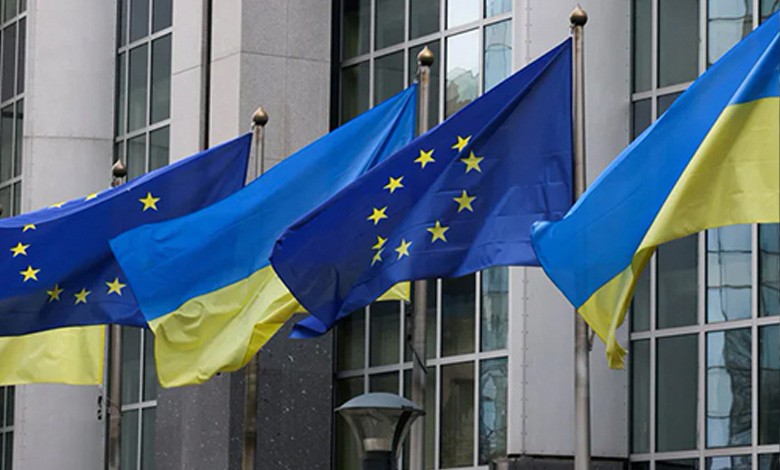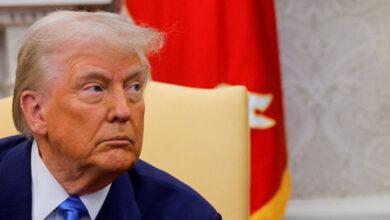EU membership or a long way of reforms: what the European Commission’s report shows

The European Commission has presented a report as part of the EU’s 2024 Enlargement Package, which includes, among other things, an assessment of Ukraine’s annual progress in reforms and transformations on the path to EU membership in all negotiated chapters. The report provides a basis for analysis not just for one day or even one week. Many sectoral experts have already expressed their views on the EU’s comments and recommendations. And these assessments vary greatly: from the statement of a breakthrough in European integration to critical remarks on the pace and quality of reforms in certain sectors. The report has become a kind of litmus test, showing both the strengths of Ukraine’s course towards the EU and the areas where progress needs to be accelerated and more consistent. Now the agenda is to turn these recommendations into concrete actions to move forward.
A roadmap for Ukraine
The European Commission’s Enlargement Package Report is an annual document in which the European Commission assesses the progress of candidate countries on their way to EU membership. It covers various areas, from justice, anti-corruption and economic reforms to human rights and infrastructure development. The report aims to show how well each country meets EU standards and what changes are needed to move further along the European integration process.
For Ukraine, this report is an important benchmark, as it assesses its achievements and points out the key tasks that need to be completed to move towards EU membership. This is not just a formal assessment, but a detailed ‘action plan’ that identifies priorities for further reforms and transformations. In the process of European integration, each country had to change dozens or even hundreds of legislative norms, so the report focuses on the priority of such transformations.
The document is important not only for Ukraine, but also for the EU itself, which seeks a stable and peaceful neighbourhood, especially in the context of global challenges.
As a rule, the audit contains lines of approval of the European integration efforts of a member state, and this is a reason for individual specialists to be proud of their achievements. At the same time, the document also points out weaknesses that are not visible to those who assess the state of affairs in the country from within.
How is the European Commission’s report structured?
The European Commission’s report has a clear structure and is divided into sections, each of which covers a different aspect of the reforms required for EU accession. It contains an overall assessment of progress, summarising the country’s main achievements and challenges for the year. It often contains a brief overview of political, economic, and social developments, as well as conclusions on the overall course towards EU integration.
This is followed by a sectoral assessment, a section that looks at progress in each of the key areas relevant to EU membership. Here you can see sections on justice, rule of law, anti-corruption policy, economy, environment, energy, human rights, etc. Each sector has its own criteria for assessing compliance with EU standards.
The report is divided into so-called ‘negotiating chapters’, each of which reflects a particular area of reform. These may include chapters on free movement of goods, social policy, and the environment. Each chapter receives a separate assessment of progress in a particular area.
At the end of each chapter, the European Commission provides recommendations on further actions that the country should take. They effectively become a roadmap for the government of the country, as they define what needs to be done to move forward in the negotiations.
The final part of the report summarises its key points and gives a forecast of the candidate country’s further progress.
Progress or lagging behind?
This year’s European Commission report on Ukraine is the second document to demonstrate how fast Ukraine is moving closer to the European Union. According to the EC, progress in implementing reforms remained at the level of the previous year. This is a rather disappointing indicator.
According to the scale from 0 to 4 used by the European Commission, Ukraine received 1.82 points (last year this figure was 1.68). In six of the thirty-three areas, ‘good progress’ was noted, which is equivalent to a C. At the same time, none of the chapters of the upcoming negotiations with the EU received the highest score for the speed of reforms.
The result is not encouraging. Over the year, Ukraine has failed to come close to meeting the requirements of an EU candidate country. Only in one chapter (Entrepreneurship and Production) did Brussels add half a point to Ukraine’s readiness level.
Obviously, at this rate, EU accession may take many more years. Although, of course, it can be considered positive that, according to the EC, Ukraine has not demonstrated a ‘rollback’ and there is not a single area where we have moved away from the EU. However, this can hardly be a cause for optimism.
Infographic: European Truth
Should European integrators be worried?
European diplomats recommend focusing on other achievements, emphasising that although the pause in progress is unfortunate, it is offset by positive changes. ‘What is more important now is the opening of the negotiating chapters, for which we are actively preparing by conducting screening. The situation here is really positive ,’ said one European diplomat. This is confirmed by the European Commission’s report, which emphasises the desire to open several negotiation clusters with Ukraine. For Brussels, this is a real breakthrough, indicating an intention to speed up the negotiations.
Deutsche Welle quotes European Commissioner for Enlargement Oliver Varghese as saying: ‘Ukraine, provided that all the necessary reforms are carried out, will be able to become a member of the European Union within the next five years. Varghese is a protege of Viktor Orban, who is known for his scepticism towards Ukraine. His praise of Ukraine’s progress and the possibility of its accession to the EU within the next five years is therefore indicative of a significant shift in the political context and underscores the importance of reforms for Ukraine’s integration into the European community. This commentary may indicate a change of heart in Europe towards Ukraine’s aspirations, even if some politicians remain cautious in their assessments.
However, maintaining the current pace of reforms may prevent Ukraine from seizing these opportunities. A radical acceleration is needed, but there are reasons for optimism that this process will begin in 2025.
Breakthrough in the nuclear industry and digitalisation of Ukraine
Some sectors have already announced significant progress towards the EU.
In particular, Energoatom announced its success, as the European Commission’s report showed Ukraine’s significant progress in the nuclear sector. An important achievement was the adoption of new legislation on radiation protection, which improves nuclear regulatory oversight procedures. Energoatom, the company responsible for nuclear energy in Ukraine, was transformed into a joint-stock company, and in June 2024, a new composition of the Supervisory Board of NNEGC was approved.
In addition, a new National Targeted Environmental Programme for Radioactive Waste Management was developed to address the problems of waste storage and disposal, including the implementation of a deep geological disposal project. In 2023, the first complex of the Centralised Spent Fuel Storage Facility was also commissioned.
Energoatom CEO Petro Kotin stressed the importance of these steps, noting that despite Russia’s full-scale invasion, the company will continue to work to ensure the safe operation of Ukrainian nuclear facilities and the implementation of European standards in the nuclear industry.
The Minister of Digital Transformation Mykhailo Fedorov also has a reason to be proud, as the European Commission has assessed Chapter 10, Digital Transformation and Media, as showing one of the highest levels of progress. Important achievements include the introduction of legislation on joint roaming with the EU and significant progress in the field of electronic identification and trust services. These developments bring Ukraine closer to EU standards in the digital sphere, which is critical for further integration.
At the same time, Mykhailo Fedorov states that there is still a lot of work to be done: ‘Ukraine needs to focus on developing cybersecurity legislation, join the Roam like at home initiative, and ensure mutual recognition of electronic services. This will make interaction with the EU even easier.
Requirements for elections and the work of the opposition
There are several clear requirements that the European Commission insists on.
Brussels does not expect elections to be held in Ukraine until the end of martial law, as stated in the report. The recommendations in the electoral sphere relate only to preparations for post-martial law elections, which should take place after the lifting of martial law with ‘sufficient’ time for preparation.
The European Commission also points out the necessary changes in the work of the parliament, noting that the opposition should be able to perform its functions, which has not been previously mentioned.
Among the important points of the report is the mention of the telethon, which, according to the European Commission, should not be kept as a source of information.





